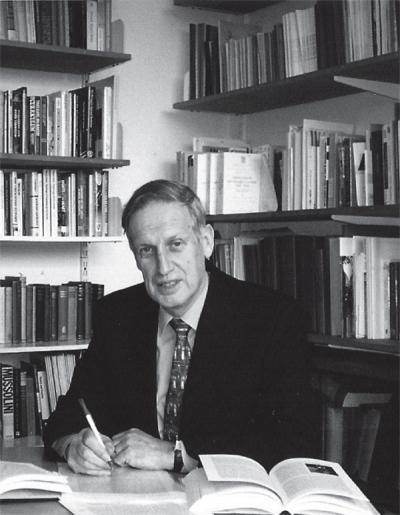The demise of this untiring senior academic, who was affiliated to the Department of Educational Foundations and Policy Studies of the London Institute of Education before his ‘retirement’ in 2003, is deeply mourned by both the English-speaking and international community of educationists, policy makers and students. His sharp and sound scholarship, firm leadership, inspiring mentorship and lifelong dedication to the global development of the history of education are acknowledged in Europe, the United States, Brazil, China, Japan, Africa, Australia and New Zealand. This is borne out by the obituaries written by his younger colleagues Roy Lowe and Ruth Watts (School of Education, University of Birmingham), Gary McCulloch (International Centre for Historical Research in Education, University College London) and J-J.H. Dekker (Department of Pedagogy, Rijksuniversiteit, Groningen). (1)
Richard Aldrich was also a former President of the UK History of Education Society (1989-93) and the International Standing Conference for the History of Education (1994-97). He was responsible for 20 books and over 90 learned articles produced over 4 decades. My personal essential pick of this substantial and trenchant output, at least as manifest on my bookshelf and on my desk, includes: ‘An Introduction to the History of Education’ (Hodder and Stoughton, 1982), ‘A Century of Education’ (RoutledgeFalmer, 2002), ‘The Institute of Education 1902-2002: A Centenary History’ (London Institute of Education, 2002), “ The Three Duties of the Historian of Education”, History of Education, 32,2 (2003): 133-143, ”Nature, Nurture and Neuroscience: Some Future Directions for Historians of Education”, Paedagogica Historica, 50,6 (2014), and ’’Education for Survival: An Historical Perspective”, History of Education, 39, 1(2010): 1-14. These are either classic texts in their own right or challenging proposals of an alert mind fuelled by an undeniable ‘unquenching spirit’ (in the words of Roy Lowe), which to my mind – in both a national and broader perspective – supplement the foundational works of W.H.G. Armytage ’Four Hundred Years of English Education’ (Cambridge University Press, 1964), J. Lawson and H. Silver ‘A Social History of Education in England’ (Methuen, 1973), W. Boyd and E. King ‘A History of Western Education’ (A.& C. Black, 1975, 11th ed.), D. Lawton and P. Gordon ‘A History of Western Educational Ideas’ (Woburn Press, 2002), G. McCulloch ‘The RoutledgeFalmer Reader in History of Education’ (Routledge, 2005) and my former tutor Harry Schofield, ’The Philosophy of Education: An Introduction’ (Allen & Unwin, 1972). However, high on my wish list are ‘Lessons from History of Education: The Selected Writings of Richard Aldrich’ published in Routledge’s World Library of Educationalists Series in 2006 and the two peer tributes he received in his lifetime from C. Whitehead & T.A. O’Donoghue (guest editors) ‘Essays in honour of Professor Emeritus Richard Edward Aldrich’, Educational Research and Perspectives (Australia), Special Issue,26,2 (2004) and D. Crook & G. McCulloch(eds.) ’History, Politics and Policymaking in Education: A Festschrift Presented to Richard Aldrich (IOE, 2007).
Young Richard Aldrich graduated in History from Cambridge in 1958, obtained his PGCE at King’s College, London, and served for 6 years as a secondary school teacher before taking up a lectureship at Southlands College of Education. His stay at King’s ignited his love of history of education and he was awarded an MPhil in 1970 on “Education and the Political Parties 1830-1870”, followed by a PhD in 1977 on “Sir John Pakington and National Education”, both supervised by A. C. Beales, a specialist of English recusant history.
Aldrich joined the Institute of Education in 1973 and with his colleagues resolved loyally to earn it an international reputation for the quality of its teaching, thinking and research. He steered the course of the discipline through thick and thin in both the Thatcher and later years. He engaged with policymakers, the public and colleagues of other disciplines far and wide, stressing the importance of sustained contextualising and arguing for historians to meet the challenges of globalisation and re-position the tired Eurocentric histories that dominate research agendas. With diplomacy, as he was convinced that individuals still make a difference; history of education is not constructed; continuities and changes (rather than radical reforms per se) are the recurring patterns of educational development…
IN MEMORIAM : Richard E. Aldrich (1937-2014), eminent historian of education
- Publicité -
EN CONTINU ↻


